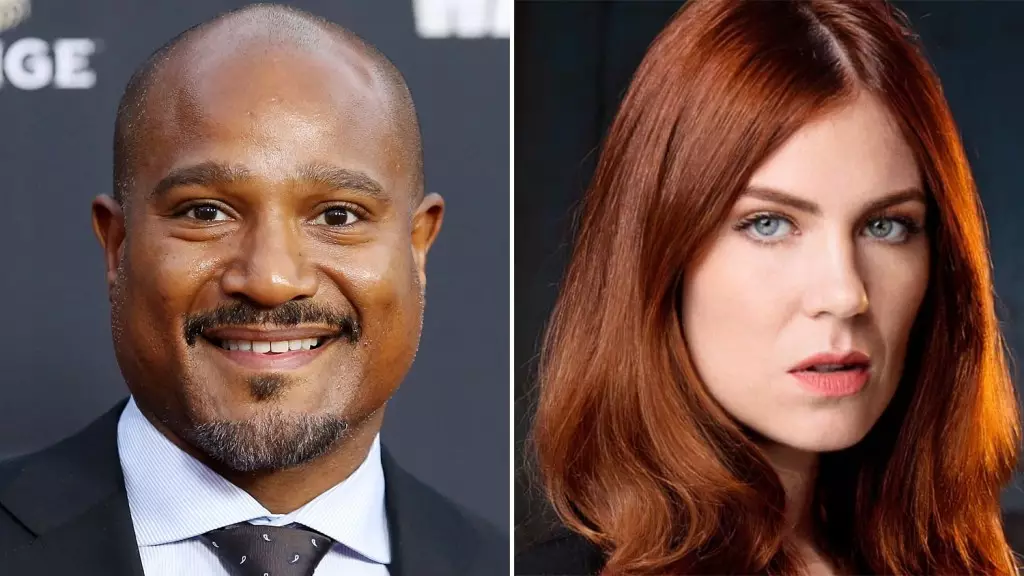In an entertainment industry saturated with predictable narratives and recycled tropes, Micah Khan’s upcoming film “Stakeout” stands out as a bold endeavor to reawaken the supernatural thriller landscape. This feature-length adaptation, derived from a short film starring Seth Gilliam and Sonja O’Hara, dives into the dark underbelly of crime while intertwining elements of horror—a refreshing take that might offer audiences more than mere entertainment.
1. Ambitious Narrative Arc
Khan’s premise—a pair of detectives plunging into an investigation of a gruesome serial killer amidst a hidden vampire epidemic—signals a daring approach destine to challenge the viewer’s moral compass. Rather than sticking to traditional horror scares, “Stakeout” aims to blend social commentary with entertainment, reflecting our collective fears regarding societal decay. This duality could provide a nuanced viewing experience, far from the superficial frights typical of the genre.
2. Strong Character Dynamics
The casting of Gilliam and O’Hara injects an intriguing dynamic into the narrative. Gilliam, an actor known for his multifaceted performances in shows like “The Walking Dead,” brings a depth to the role that may allow audiences to explore nuanced interpretations of good and evil. O’Hara, with her Emmy-nominated talent, complements this with her own layered performance. The chemistry between the two seasoned actors could serve as an emotional anchor amidst the chaos, enhancing character-driven storytelling.
3. A Promising Creative Vision
Micah Khan’s statement, “Everything under the sun has already been told before,” positions “Stakeout” against the backdrop of a genre often plagued by monotony. His intent to explore “the shadows” signifies a deliberate effort to deliver stories that grapple with contemporary anxieties, effectively making a case for the coexistence of horror and real-world issues. By confronting our societal secrets through this artistic lens, Khan could redefine the genre while providing a catharsis for the audience.
4. Exploring Vampirism Beyond the Supernatural
While vampirism has been depicted as a trope in countless narratives, “Stakeout” suggests a more visceral interpretation—linking the vampire epidemic to socio-political decay. By presenting vampires not merely as supernatural beings but as manifestations of fear, societal inequality, and moral ambiguity, the film has the potential to provoke critical thought, challenging the audience to confront their own realities.
5. The Impact of Collaborators
The collaborative efforts behind the scenes, including producers Natalie Stavola, Katrina Kearns, and David Wappel, reveal a commitment to crafting a well-rounded vision. Each contributor brings their unique perspective, which might enrich the overall storytelling. With a diverse team of creative minds, “Stakeout” could symbolize a collective effort to push the boundaries of traditional filmmaking.
6. The Risk of Authenticity
Khan’s ambition to delve into the “shadows” implies a willingness to take risks—an essential element for any work that hopes to leave a mark in the crowded genre space. Exploring unchartered emotional territories, the filmmakers are tasked with making bold choices that might not only resonate with viewers but also foster meaningful discussions surrounding crime, justice, and morality.
7. Timing and Cultural Relevance
As the world grapples with persistent crises—from social injustice to governmental accountability—stories like “Stakeout” are crucial. They provide an escape while simultaneously urging audiences to reflect on their own societal responsibilities. With the horror genre often resonating as an emotional outlet, “Stakeout” could emerge as a culturally relevant commentary disguised as thrilling entertainment.
In an era crying out for originality, “Stakeout” is poised to carve its unique niche within both the horror and crime thriller realms. It is not just a film; it’s a reflection of our contemporary anxieties wrapped in a tale that dares to confront the monsters lurking both in our world and our minds.



Leave a Reply